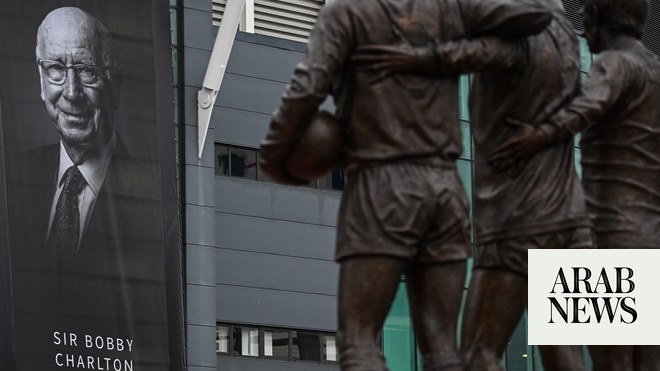
Fifteen years ago this day (Oct. 3, 2005), the EU enlargement process took a major step forward as the bloc opened accession negotiations with Turkey. “We have reached an agreement. InshaAllah, we are departing for Luxembourg,” said then-Turkish President Abdullah Gul following a meeting with Recep Tayyip Erdogan, who was prime minister at the time.
The early 2000s was the golden age for Turkey-EU relations. When opening the negotiations, the EU asserted: “The advancement of the negotiations will be guided by Turkey’s progress in preparing for accession, within a framework of economic and social convergence.”
It was after years of preparation that Turkey formally progressed to the next stage of the accession process and EU-Turkey relations entered a new phase. However, in 2008, despite early positivity, the Turkish-EU accession process stalled, mainly due to the Cyprus issue. Although the European Commission proposed a positive agenda for Turkey’s accession process in 2011, the process soon reached a standstill due to enlargement and crisis fatigue in Europe.
It took years for the EU to approach Turkey again. Needless to say, the migration crisis triggered the rapprochement. In November 2015, EU leaders and their Turkish counterparts held a meeting that marked a significant step in developing EU-Turkey relations and contributed to managing the migration crisis. A few months later, in March 2016, Turkey and the EU agreed to accelerate the fulfillment of the bloc’s visa liberalization roadmap for Turkish citizens, while both sides agreed to revive Ankara’s accession process if all jointly agreed upon benchmarks were met. This was not without cost, of course. Turkey and the EU also reached a deal to stop irregular refugee flows and to improve the conditions for Syrian refugees in Turkey. Under this deal, Turkey’s task was to prevent the flow of migrants into Europe. Since then, Turkey and the EU have had several ups and downs.
A significant EU summit took place in Brussels on Thursday and Friday, when EU leaders met for talks on a host of issues. At the heart of the discussions was Turkey. The summit took place in an environment in which Germany, as the current president of the Council of Europe, accelerated its efforts to calm the tensions within the bloc against Turkey, as member states have opposed Ankara’s recent tactical and diplomatic moves in the eastern Mediterranean.
The summit was a critical exam for the EU in terms of its relations with Ankara, as its leaders face a difficult balancing act over the EU-Turkey relationship. Due to the rising tensions in the eastern Mediterranean, the EU has got stuck between France’s tough stance on Turkey and Germany’s push for dialogue. Ahead of the summit, German Chancellor Angela Merkel called for a balanced policy toward Turkey. “We have to rebalance our relationship with Turkey, but also continue our cooperation in many important areas,” she said.
Another statement ahead of the summit came from European Council President Charles Michel. In his invitation letter, the Belgian said that Thursday would be devoted exclusively to the situation in the eastern Mediterranean and relations with Ankara. “Our objective is to create a space for a constructive dialogue with Turkey to achieve stability and security in the whole region and to ensure full respect for the sovereignty and sovereign rights of all EU member states,” he wrote.
Speaking at a news conference following the EU summit, Michel announced that the bloc had agreed to adopt a two-way strategy toward Turkey and wanted to give a chance to constructive political dialogue but warned that all options remained on the table if that was not the case.
In recent weeks, EU officials have underlined the importance of multidimensional relations with Turkey, stressing the need to look at the ties from a “broader geopolitical perspective,” despite demands by France, Greece and Cyprus for a harsher policy and sanctions against Ankara. Experts believe that the accession framework is no longer effective. However, Turkey — an EU candidate country — remains a crucial partner in certain areas, such as migration, trade, energy and security.
Member states have opposed Ankara’s recent tactical and diplomatic moves in the eastern Mediterranean, but no sanctions on Turkey came out of the recent summit.
Sinem Cengiz
There is a perception within the EU that excluding Turkey may push Ankara closer to Russia. Therefore, despite the harsh calls from the France-Greece group against Turkey, the EU wants to tread a fine line between the former and the latter, especially in this volatile regional context and after Athens and Ankara said they were prepared to resume the talks on their continental shelf disputes that were interrupted in 2016. The talks are to be held in Istanbul, but a date has not been announced. Sixty prior attempts have been held since 2002 without success.
Meanwhile, NATO Secretary-General Jens Stoltenberg announced that Turkey and Greece have set up a military hotline which aims to reduce the risk of clashes in the Mediterranean. The announcement of a hotline followed talks between Turkey and Greece at NATO headquarters in Brussels as well as at the EU summit. Both enable direct communication between the two sides — Russia and the US set one up during the Cold War and it has been in operation ever since.
Sinem Cengiz is a Turkish political analyst who specializes in Turkey"s relations with the Middle East. Twitter: @SinemCngz
Disclaimer: Views expressed by writers in this section are their own and do not necessarily reflect Arab News" point-of-view












